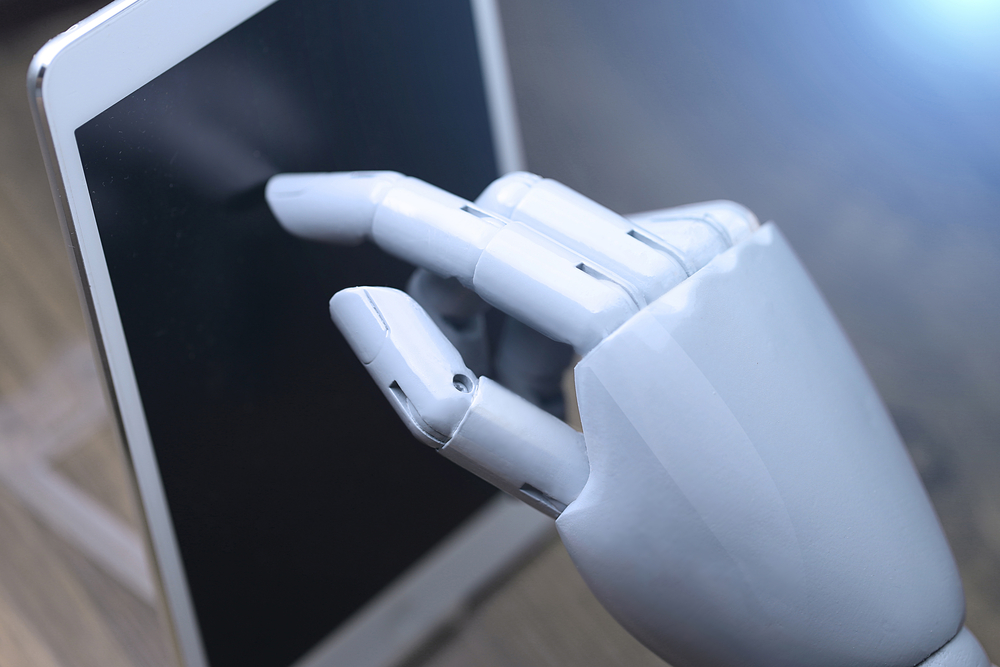Blog
BLOG: The rise of the machines – ISA investments for the future

Guest Author:
Darius McDermottRobots are increasingly carrying out everyday and mundane tasks we loathe to do at home and at work. While we’re still in the early stages of this disruptive trend, the long-term potential seems clear.
Terminator 2 is one of my favourite films of the 1990s. In my defence, the film is critically acclaimed. Arnold Schwarzenegger turns from baddie to good guy to take on the might of Skynet, the artificial intelligence system that achieves self-awareness from the humans who created it and launches a nuclear attack against them.
While some of the action in the film is the stuff of nightmares, we could only dream of such advanced technology when the film was released in 1992.
Today, robots are doing some of the everyday tasks we loathe in the home – like tidying up – or doing mundane and dangerous tasks in the workplace. They started life on the factory floor, as automotive companies aimed to improve manufacturing techniques, and are now playing an increasing role in the likes of education and medicine, as well as security and defence.
And then there is the sphere of artificial intelligence (AI), one of the biggest investment opportunities of the 21st century. A report from PwC estimates that AI will add $15.7trn to the global economy in the next decade. It can do things like sift through millions of data points and help diagnose cancer and, together with robotics, is helping to drive autonomous vehicles from science fiction to reality.
While there are many positives, the side bar to this is the threat to jobs. Analysis from Oxford Economics found that up to 20 million manufacturing jobs around the world could be replaced by robots by 2030.

Wellness and wellbeing holidays: Travel insurance is essential for your peace of mind
Out of the pandemic lockdowns, there’s a greater emphasis on wellbeing and wellness, with
Sponsored by Post Office
But others, like Dr Hannah Fry, an associate professor of mathematics at University College London, believe not as many jobs will be lost as we think. Machines can do remarkable things, but don’t understand context. Take Satnav, for example. Putting your blind faith in the device could leave you driving through rivers or worse. Humans will still be needed to monitor and adjust our robotic workmates.
We are still in the early stages of this disruptive trend – however it’s long-term potential seems clear – no more so than today, at a time of social-distancing. Companies using automation are at a clear advantage. Indeed, it is thought that today’s global healthcare crisis could accelerate change and a number of trends including automation.
This could make these companies ideal for long-term investment, within an ISA portfolio.
Three funds to consider this ISA season
1) Smith & Williamson Artificial Intelligence fund ‘eats its own cooking’ using AI system to help find companies whose business models are aligned to benefit from this growing theme. The fund is unconstrained in that it can invest in businesses of almost any size and in more than just technology stalwarts; around half of the portfolio can be found in the healthcare and consumer-related sectors.
2) AXA Framlington Japan invests in Japanese companies of all sizes, with a bias towards smaller cones with larger growth prospects. Automation has been a recent theme in the portfolio: as Japan’s population is aging, the workforce is contracting and robots are being used more and more by companies to allow them to operate efficiently, as well as to help humans do their jobs (i.e. robots for heavy lifting).
3) Liontrust UK Micro-Cap invests in a number of small technology companies in the UK (28% of the portfolio currently), including the likes of Medica, the tele-radiology provider, which has just invested in an AI/automation company. The aim is that it will help prioritise brain scans to identify those who require the most urgent attention.
Darius McDermott is managing director of FundCalibre